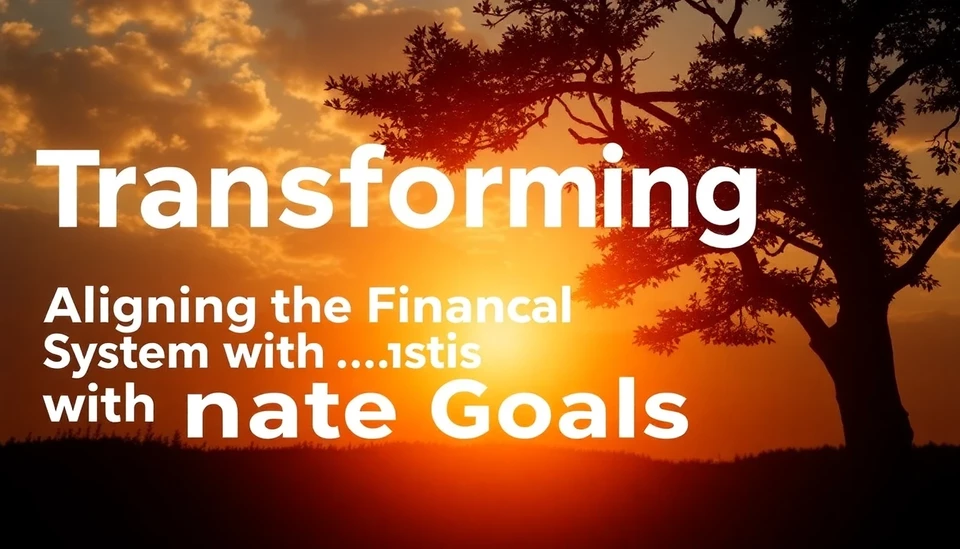
In a bold move to combat the escalating climate crisis, financial experts are rallying for a comprehensive overhaul of the financial system to ensure it facilitates, rather than hinders, efforts to achieve sustainability. The recent discourse emphasizes the urgent need for investments that prioritize environmental well-being and the integration of climate considerations into financial decision-making processes.
The ongoing challenges posed by climate change necessitate significant shifts in how financial markets operate. Analysts highlight that traditional financial metrics often overlook the long-term consequences of environmental degradation, resulting in investments that may be financially lucrative in the short term but detrimental to the planet's health. This reorientation calls for the adoption of new metrics that better account for environmental costs and benefits.
A key aspect of this transformation lies in the adoption of sustainable finance practices. Financial institutions are being urged to adopt frameworks that incorporate climate risk assessments into their lending and investment strategies. This approach not only enhances the resilience of financial systems but also directs capital towards renewable projects, innovative technologies, and infrastructure that support a greener economy.
The momentum for these changes is gaining traction as investors increasingly recognize that sustainable investments can yield competitive returns. Research indicates a growing appetite among stakeholders for aligning their portfolios with environmentally responsible initiatives. This shift in investor mentality is encouraging financial institutions to develop products that promote sustainability, such as green bonds and climate-focused funds.
Additionally, regulatory bodies are playing a pivotal role in fostering this shift. There is a call for clearer guidelines and frameworks to enhance transparency regarding climate risks. These measures will help stakeholders to make informed decisions, ensuring that investments align with long-term sustainability goals. Policymakers are encouraged to create incentives for more environmentally friendly practices, promoting accountability throughout the financial sector.
The dialogue around restructuring the financial system to prioritize climate action is gaining momentum, with many experts advocating for collaboration between various sectors. By harnessing the collective resources and expertise of financial institutions, governments, and businesses, a unified front can be established to address the climate crisis effectively. This collaboration underscores the importance of integrated approaches that consider social, economic, and environmental factors in decision-making.
In conclusion, redefining the financial system to work in concert with climate goals is not just a necessity but an opportunity for innovation and growth. As the conversation continues to evolve, the alignment of finance and climate ambitions could usher in a new era of sustainable development, benefiting both the economy and the planet.
#SustainableFinance #ClimateAction #GreenInvestments #RenewableEnergy #FinancialReform #Sustainability #EnvironmentalEconomics #ClimateCrisis
Author: Peter Collins




